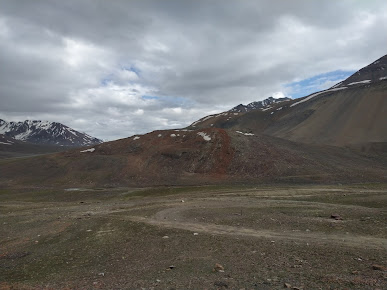TALIBAN MARCH TO KABUL AND BEYOND – PART II
‘The
Taliban leadership looks at unpredictability as a major diplomatic tool to
achieve geopolitical gains.’ – Veteran Col RS Sidhu
India Gets Its First Diplomatic Gambit Right
The Taliban, despite indirect overtures to India at Doha, failed to make
an unequivocal offer of security for Indian diplomatic mission. This issue
assumed critical importance for India, as it strongly pointed towards discord
within the Taliban hierarchy on geopolitical stance to be adopted by the new
Government of Afghanistan. It also highlighted the strong position held within
the Taliban coalition by substantial components that are inimical to Indian
interests.
India's immediate
interest lay in safe evacuation of it's citizens from Afghanistan, which it
effectively organised. India adopted the right strategy to evacuate all its diplomatic
staff from Afghanistan, as under the circumstances, retaining the diplomatic
staff in situ could have led to high risk of an avoidable hostage crisis.
Immediate Aftermath
of US Withdrawal from Afghanistan
The first impact of the withdrawal from
Afghanistan is being felt within the US itself, as it is further fracturing its
domestic polity.
Geopolitically, the most important impact is
likely on the maturing of the Quad Alliance, as India will most likely drag its
feet on fast forwarding this nascent grouping. US influence with the South
China Sea littoral states, especially Vietnam and Philippines, is also likely
to be impacted, resulting in their going slow on security tie up with US.
US standing in West Asia too will be impacted.
Its political capital with Israel will be drastically reduced, resulting in its
inability to push Israel. It will also find it difficult to resume nuclear deal
with Iran, one of the stated goals of the Joe Biden presidency.
N-proliferation by N Korea, Pakistan, Iran
will be that much more difficult to be checkmated by US.
India’s Stance
Based on past performance, its safe to state
that India’s MEA has invariably adopted a policy of ‘wait and watch’, whenever
the chips were down. So too this time. The MEA is upbeat confabulating
with Sher Mohammad Abbas Stanikzai, Taliban head of political office in Doha.
Much is being made out of his military training at IMA, Dehra Dun. In
corporate parlance he may be comparable to a marketing head, willing to promise
the moon to get the business. However, delivery on the promises made is always
an operational issue.
There is no clarity on operational satraps of
the Taliban, as they are a motley mix, owing loyalty to varied interests
several of whom are known to be inimical to India, and will likely be more than
happy to scuttle any agreement arrived at between India and Afghanistan. Under
the circumstances, promises made and accepted will not be worth the paper
they’ll be written on.
Taliban's immediate concern is to gain
international legitimacy, to be able to access international financial
aid. While engaging in talks, even with the enemy, is good diplomatic
strategy, I sincerely do hope that MEA is able to visualise their gambit. On
this score the diplomatic outcomes of 1948, 1965, 1971, 1987, 1999, 2019 do not
offer much confidence.
With no direct geographic access between
India-Afghanistan, the only way the situation there can impact the internal
security situation within India is through Pakistan. Signaling an
unequivocal and powerful retaliatory response, and overt preparation for same,
is the key to handling the situation. India will need to be prepared for
undertaking hard action against Pakistan at the very first sign of its involvement
in trans LC infiltration and sponsoring of terrorist activities.
As regards economic access to CAR is concerned,
Afghanistan does not figure in it. The access can only be through Iran, unless
Pakistan capitulates!!! Hence, there’s no urgency for India to declare its
diplomatic stance towards the Taliban Afghanistan.
“Thus, ‘prepare and wait’ rather than ‘wait and
watch’ would be the more appropriate option for India.” – Veteran Col RS Sidhu




Comments
Post a Comment